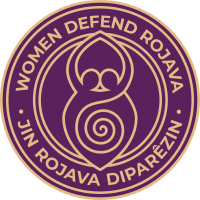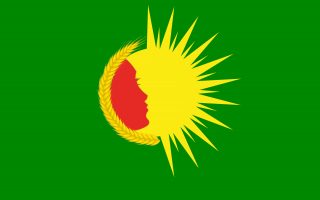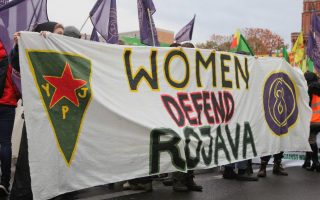We interviewed Leyla Ahmed, co-chair of the Kobane Canton. We talked about the system of democratic confederalism, the role of women in it, the current situation in Kobane and in the North and East of Syria and the perspectives for the future.
My name is Leyla Ahmed I’m the hevserok1 of Kobane canton, and a teacher of Kurdish language. I was elected seven months ago to this position of hevserok.
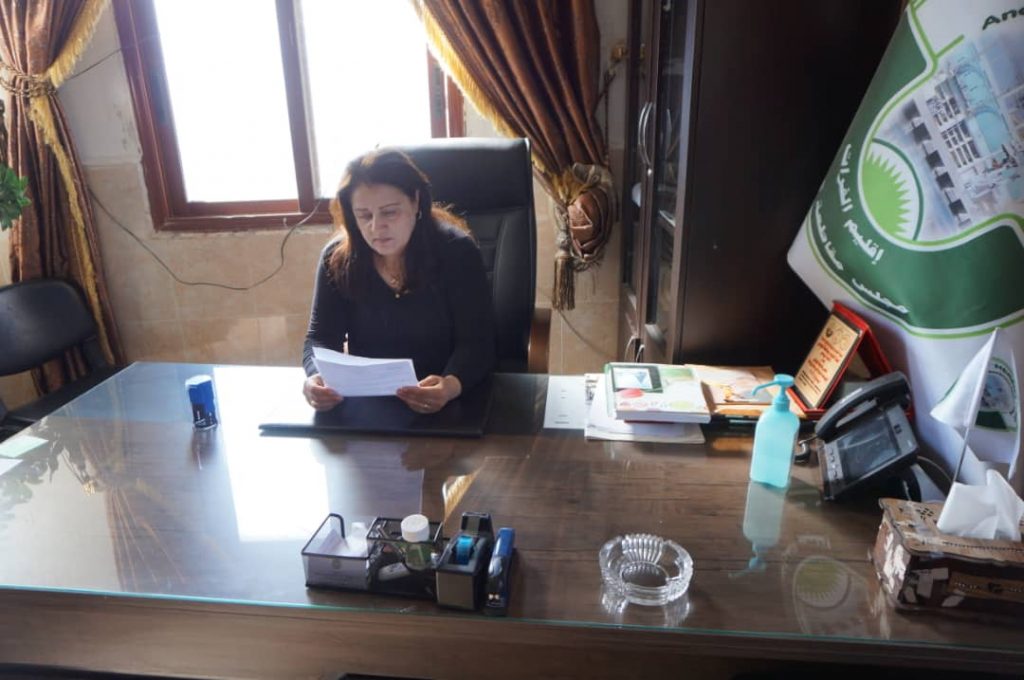
Can you explain how the system of meclîs2 and komîn3 works?
Everything starts from the komîn, it is the first small cell of the society and base of the organization.
The general aim of the meclîs is to make society progress in a good way and apply direct, true democracy.
In the komîn everybody can participate, have their own voice and play their own role, give their opinion directly. Nobody can replace them people represent themselves.
There are komîns in all villages and neighborhoods. After komîn comes meclîs, there are meclîs of districts and towns.
Between meclîs and komîn there is direct contact. Meclîs take the opinions of the komîn, discuss them and then the decisions are taken, the meclîs also helps the komîn to resolve problems.
In the city the same system applies between a meclîs of a city and nieghbourhood komîn.
Everything is based on the regional communal system, in this way the meclîs through the komîn can arrive to everybody, to all houses and families, and actually know society.
The system of Democratic Confederalism is composed of many meclîs at the local, regional and national level.
What would be the main difference between the state and democratic confederalism?
If you look to any state, there is only one national meclîs (parliament), such as the Syrian or Turkish parliament. There is only one nation, and one ideology which governs all the people.
But here there are many confederated meclîs, everybody has a space there, different communities are represented; Kurd, Arab, Assyrian, Circassians… Everybody can participate and directly represent their opinions.
Every community has their own characteristics, language and different opinions and we work together to solve the problems together.
We call it Biratiya Gel4 and it is one of the basic principle of our system.
The hevserok system applies in all N & E Syria, ensuring women’s voice and presence in the political and social sphere. Women are actually represented; their will, way of thinking and doing are included and must be respected.
This is a big step forward and progression in our society, it is a step towards becoming a political and ethical society.
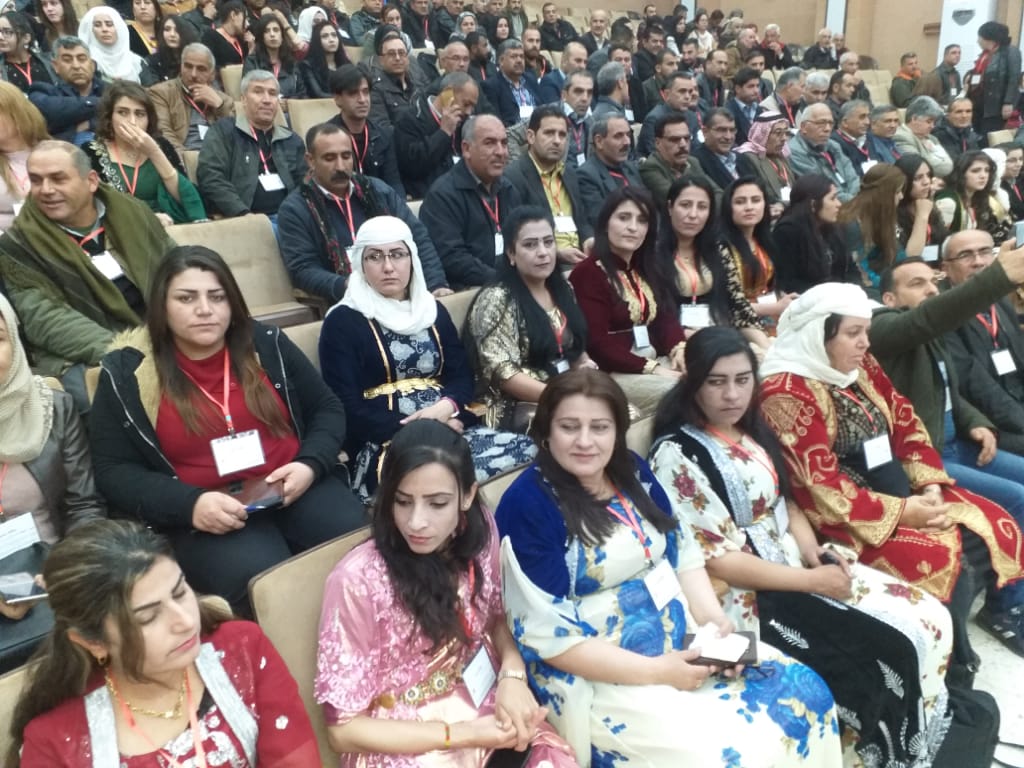
What is the role of the women in the meclîs?
Because of the hevserok system and the presence of women we can better reach women and their issues. In the present there is still lot to do, because of the influence of the old state system, religious mentalities and feudal tribe relations within society.
For example, the Women’s Law has been set and is implemented, but it takes time for society to understand it and accept it. In Kobane tribal culture is really strong. This has also really good sides, people are really connected and stuck together, but on the topic of women topic there is still a lot of patriarchal heritage and pressure on women.
We work again through the komîn and special committees with meetings and personal contact, we explain and make people understand the importance of women’s rights, for example the prohibition of underage marriage, or the law against polygamy.
What are the difficulties in your work?
Usually and mostly I would say people are with us but still, as I said, in the elder community there are difficulties and clinging to the old values, and this takes time and work to change the mentality to understand and accept new concepts.
So where is the solution, how do you solve this kind of problem?
Those problems get solved through direct contact with the people, with talking and discussing, with meeting and mainly with education. In our experience many time people come back to us after a while and reflect if there is some disagreement or contradictions.
Are there class differences between the people here?
Here in Firat region there are not big social differences I would say. There is no upper class as you call it. People in general are close to each other and not divided by class. There are differences, but not that would divide the people into classes. In general in our culture there is lot of communal and family culture and spirit, class divisions actually haven’t developed here.
How are the people of Kobane now? What is the current situation?
The people of Kobane in general are enthusiastic and a people with a big sense of resistance. But there are many things on their shoulders which make them worried and their life more difficult, after everything they already have gone through.
If I would name some, in the first place it is the constant threat of the of Turkish State, it is a direct threat on their life and to lose everything once again. Of course there is Corona virus which is also a concern, it is the new enemy which they cannot even see. And then add the economic situation caused by the increase of the price of the dollar.
How is the situation now in the Firat region since the last attacks of Turkish state?
Officially the attacks should have stopped, but actually they have never stopped. The Turkish State keeps attacking us in all different dirty ways.
Lately there have been many cases of bombing. They throw bombs on our fields and villages in time of harvest, to attack also our economy and put the people in constant fear.
Thousands of hectares are burned every day. People are still forced to leave their homes. Just in the last days they attacked us and burned three villages and thousand hectares of trees. Civilians also were hurt and died. So you can see clearly, that civilians are targeted and the brutality of the Turkish state continues day by day. Here, and in the all occupied places; Afrin, Gires Spî and Sêrêkaniye, people are living in terror, women are especially targeted kidnapped and killed.

We have thousands of refugees, whose humanitarian situation and conditions are really difficult. In the last years the Turkish state have shown itself clearly to be a danger for the world. They put together all kinds of terrorist organizations, support them with weapons and give them free rein in the occupied regions to commit the most heinous crimes. Women are kidnapped, imprisoned, stripped naked in their prison and beaten… There are examples.
How has the meclîs dealt with the Corona situation?
If you compare our material and health structure conditions, due the war, constant attacks and the embargo things are quite minimal, so the danger if the virus spreads here is really high.
We could have seen how many states are hiding the truth, or using this situation in their profit, even taking precautions late.
The Autonomous Administration it its people’s system, so we react according to the needs of the people and we all the precaution’s we could as fast as possible; the border was also closed, movement between regions was also cut, special places prepared just in case, and public places have been generally disinfected.
So till now, we have been able to protect our people against the virus spreading here and the people themselves were helpful.
How has it affected people in North and East of Syria?
All the common work had stopped, so there were lot of people without work and in need.
Generally it has affected the economic situation of the people and made the poor families even more vulnerable so that became also our duty to help them.
Probably we weren’t able to arrive to all families, but through the komîn and special social affairs committees we could give material support to those who were in need.
We also maintained the salary for those most in need.
You also mentioned the problem of the increasing dollar price?
As is known we are included in the Syria geography and also using Syrian money. The Syrian state is now in economic crisis due to USA policies. It is a difficult situation and for sure it affects the people and their economy directly. The Syrian state hasn’t done anything for the people. Prices have drastically risen.
The Autonomous Administration took steps to protect the people against this crisis. For example regulating the prices of the basic foods such as bread and sugar and increasing salaries, giving this kind of response to this crisis at the level of that is possible. Still it couldn’t prevent the crisis affecting the people of Rojava.
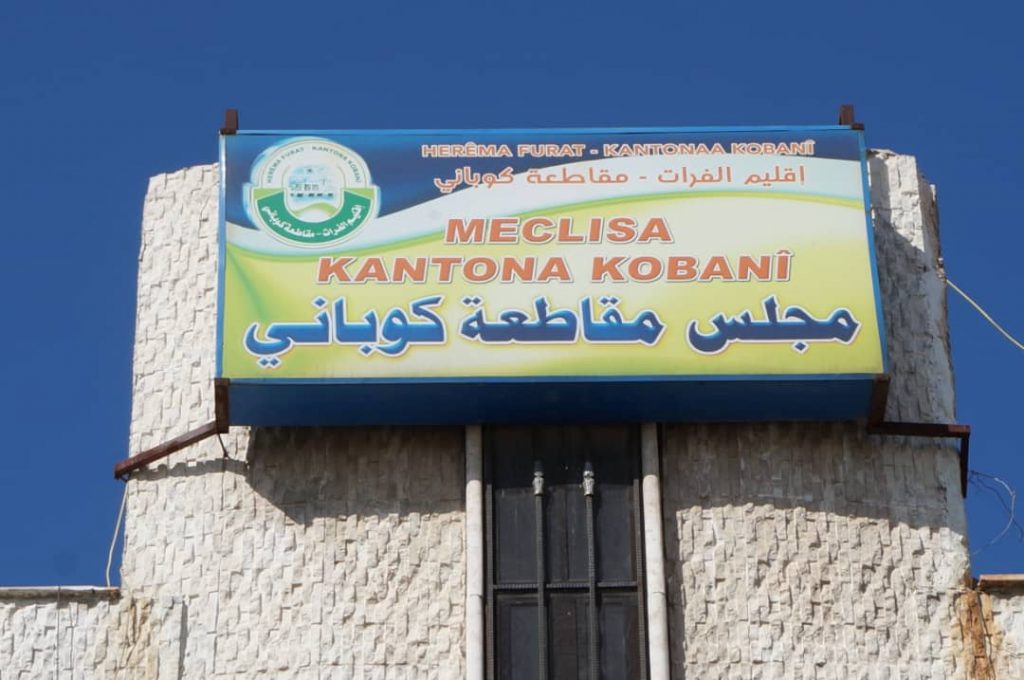
What are your wishes for the future?
We want to stay in our land and live a peaceful life with our Arab, Syrian, Armenian and so on brothers and sisters. We have imagined, created and designed an alternative life in true democracy, a life according to Biratiya gel principles.
The Turkish state and the hegemonic powers don’t want to let this flourish, don’t want to let us realise it.
We want to call the international community and organizations to stand with us and help us to protect this democratic project and our people. We have given thousands of martyrs and the world should see it. We want the international community not to leave us alone against this attack.
1 Hevserok – co-leader/ co-chair: The political system across all its branches and levels works on the basis of a ‘co-chair’ system in which leadership positions in most institutions (outside of the women’s structures) are shared by one man and one woman
2 Meclîs – Council/Assembly: Councils are the representative bodies which discuss and make decisions about social issues, formulating necessary policies and representing the will of the people.
3 Komîn – Commune: Communes are the most basic unit of the political system of North and East Syria. They are established in Article 48 of the Social Contract, which defines the commune system as “the essential basic organizational form of direct democracy.”
4 Biratiya Gel – Brotherhood of the people: A core idea of the ‘new paradigm’ developed by Abdullah Öcalan is the idea that Kurds should not seek to establish a state of their own, but should instead fight for a political system which embraces the cultural and political rights of all people. This approach aims to avoid the danger of reproducing the oppression of one people by another through the system of the nation-state.
